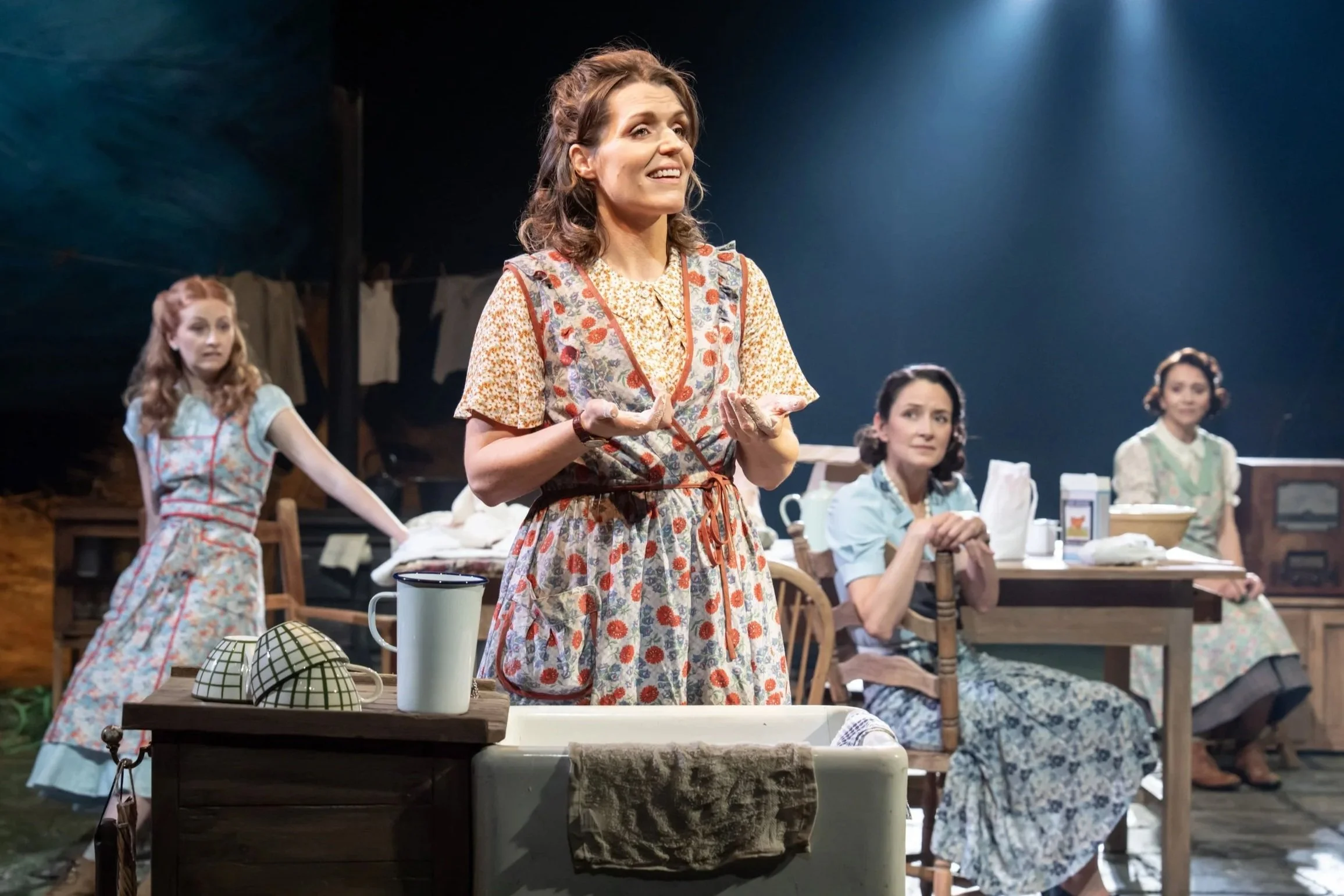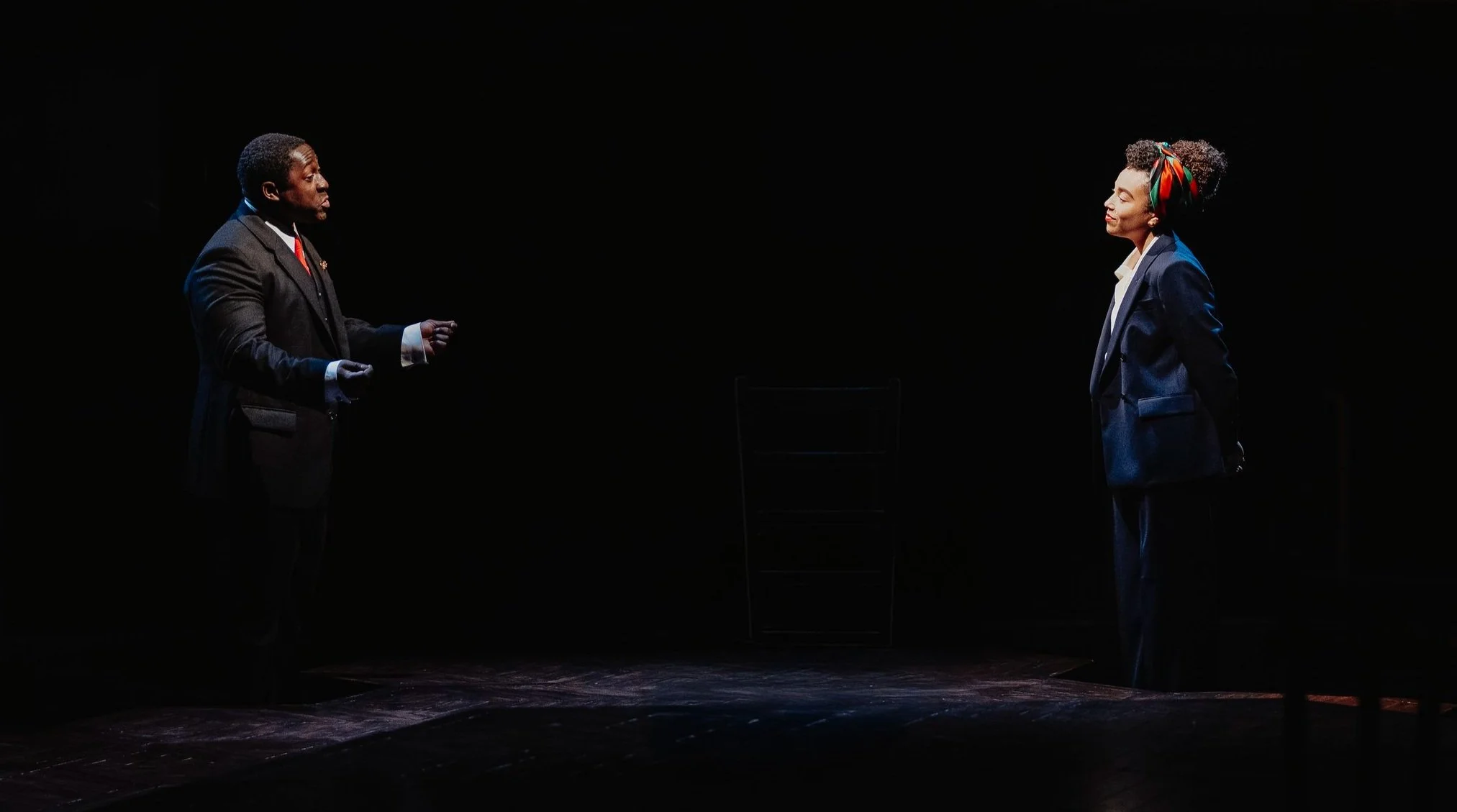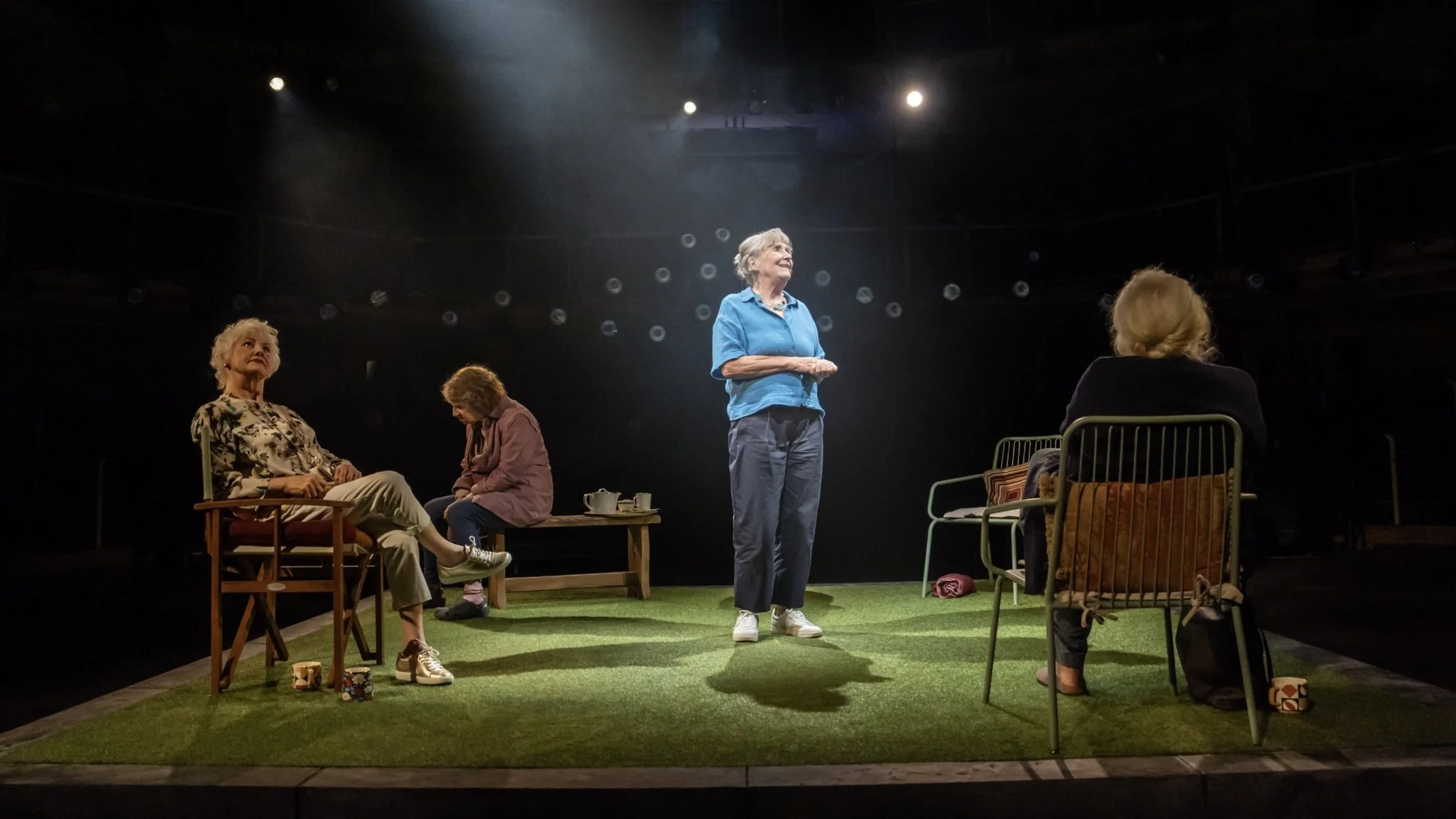In a production of strong female roles, men are very much “other”. The sisters are a strong unit - albeit an increasingly fragmented one. Whilst men bring disturbing and often untrustworthy stories from the wider world.
Liberation: a passionate play to celebrate Manchester’s role in an ongoing global revolution
This powerfully feminist production, gives airtime to universal issues and centres on the women who campaign for liberation whilst also fighting for their own place in that very fight.
Women’s Sport Is Gaining Momentum, So What Happens Next?
England’s Lionesses set attendance records. But, as we prepare for the latest installment of the Women’s Euros, will we ever refer to “football” and “men’s football”?
Kym Marsh dazzles as Mike Leigh’s leading lady
Comforting nostalgia meets uncomfortably familiar “networking” situations. 1970s kitsch meets sadly universal male aggression. And everyone drinks a LOT of gin along the way.
Escaped Alone & What If, If Only: A Distilled, Dystopian Double-bill
In less than 90 minutes of stage-time combined, these two short plays take on the complexities of mental illness, ageing, grief, and loneliness.
Celebrate Manchester Pride at HOME: My Son’s a Queer Review
The journey to self-acceptance and true, full-colour self-expression is rarely straight.
“We will be loved anyway”
The Importance of Being Earnest - Wilde for the Instagram Generation
It’s loud, pink, and hilariously sassy; Oscar Wilde’s satire meets the Barbie era.
A Taste of Honey: an intimate, intense mother-daughter drama
From Salford playwright, Shelagh Delaney, comes an intimate depiction of a mother-daughter relationship and the men who come between.
Work It Out: A Comedic Combination of Inner Demons, Camaraderie, and Dancing.
Touching upon every inch of the human experience. Tackling mental and physical afflictions, and the unfair societal structures that often exacerbate them through comedy.
Shed: Exploded View - an important emotional cacophony
We look in as microaggressions compile and connect to become something huge.
TW: themes of domestic abuse
Saltburn: Desire, disgust, and dirty bathwater
Saltburn makes you look at desire and sex in a way that is both interesting and tricky to look at.
Bi-Topia: Seeking Self-definition on Stage
Bi-Topia tells the story of battling with uncertain sexuality, mental health and the very definition of masculinity.
Escaping the "Other": F*ck Miss Saigon
A sharply political comedy tackling racist theatrical tropes. Courtesy of a newfound transcendental awareness, Kim rejects and shatters the stereotypes that have bound her and her sisters who came before.
Queen Lear - Fiercely Feminine Shakespeare
King turned Queen, Lear is a celebration of theatre and diversity, in a Northern, female voice.
The Female Force: A Stirring Story of Women Police Constables.
A Force to be Reckoned With celebrates the strides made by pioneering female “policemen”, facing sexism through song and sketch.
No Pay? No Way! Political Farce at the Royal Exchange
A modern translation of the original play, No Pay? No Way! highlights that the economic troubles of 70s Italy are not only still relevant, but arguably only getting worse.
The Merchant of Venice (1936) -
In this female-fronted Shakespearean interpretation, we are reminded of the antisemitism and prejudice that still pervades contemporary society.
Teachers are striking - and it’s about time.
This is what it’s really like to be a teacher who knows all the best places at school to go and cry.
Beginning: A Touching Two-Hander about Taking the Plunge
In a post-house-party haze, Laura and Danny find clarity on life, loneliness, and possibilities.
An honest chat about intimate fluids: let’s bust those taboos
Misinformation and lack of knowledge often turn our bodily fluids into a taboo. So we spoke to Bodyform, to get the lowdown on what’s going on down under.



















